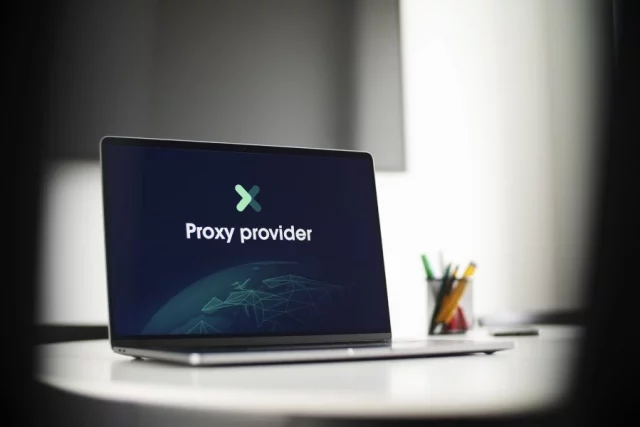There are many reasons why companies should consider using proxy servers for their online operations. Proxies can be very useful for boosting productivity and data protection on many different levels.
However, they have many different servers, including shared, residential, SOCKS, and HTTP. They differentiate in application, service, location, IP address, anonymity level, and traffic flow.
Here we will focus on proxy applications for business and give you some helpful advice on picking the best-suited proxy server for your company. Before we get to the main topic, let’s see what proxies are and how companies implement this handy tool in their business.
The Fundamentals Of Proxies
Whenever you try to access a website, the device you’re using sends a web request to a specific server and back to you. Web requests typically contain all the device’s sensitive information, such as location and IP address.
That can help a specific website recognize who made the request and what was requested and send the exact data to your device. That’s how the exchange of information on the internet works. However, that exchange is also visible to cybercriminals, mainly when requesting information from unsafe websites.
Web proxies use their IP address and location to send you the requested information safely and securely. Proxies can filter out all the data sent to your device and check its security before sending it to you. They can also recognize unsafe data traveling to your device and block it.
How Companies Can Use Proxies
Here are some of the most common business use cases of proxies.
Ad verification
Proxies can help you display your ads to the right audience at the right time and in the proper context. They check for fake ad clicks, fake impressions, malware, verify affiliate links, and check ad placements. Proxies can also check if your campaigns or ads are displayed correctly in different countries and locations.
Data scraping
Proxies can help you with data scraping by limiting requests, meaning you can’t scrape data at fast speeds. Switching between multiple proxy servers during scraping makes it possible to go around these limits since every proxy has a different IP. That also works with geo-blocked content.
Review monitoring
Proxies can help you collect all the reviewed data about your brand or company without being blocked. Review monitoring often requires scraping competitor sites. Proxy servers let you do that securely by providing anonymity to your scraper. They can also help you filter out only accurate information.
SEO monitoring
Proxies are also great for SEO monitoring. They can allow you to freely collect data about your company’s ranking regardless of location. Proxies scrape data from different places and devices, which can help you boost your business visibility and scaling efforts.
Which Proxies Are Out There?
There are many different types of proxies, and they all have specific use cases. We can’t physically list all proxy server types out there, but here are some that most businesses use:
- Residential proxies
- Datacenter proxies
- Shared proxies
- Rotating proxies
- Forwarding proxies
However, we will focus on two specific proxies and see the difference between SOCKS vs. HTTP proxy servers for business use. Before we explain which one you should choose, here’s more information about them.
SOCKS proxies
SOCKS is an internet protocol that serves to take your data and send it to you by using a remote server. SOCKS proxies reroute the traffic through a proxy server that hides the user’s IP address and unblocks all the geo-restricted sites. Most importantly, these proxies work on all ports and networks.
HTTP proxies
HTTP is also a protocol that most businesses use to scrape data or run a bot. HTTP proxies provide clean and filtered website data to their users, and they can ensure a secure online connection. They are also helpful for malware detection and attacks coming from external networks.
Why Choose SOCKS Over HTTP Proxies
If you’re wondering why so many people debate about SOCKS vs. HTTP proxy, you’re in the place to be. There are so many reasons why businesses should choose SOCKS over HTTP proxies.
HTTP proxies only interpret HTTPS websites and HTTP protocols.
On the other hand, SOCKS proxies, like the newest SOCKS5, are much more flexible and secure for business operations. They can adapt to every situation and fix most of the problems that most people experience online.
They can work with almost all protocols (TCP, UDP, and HTTP), programs, and traffic without limitations and restrictions.
For more on the topic, you can read the article here.
Conclusion
Businesses need to take the necessary precautions to keep all their sensitive data out of the reach of cybercriminals who may abuse it and provide their employees with unlimited access to essential business information online.
Luckily, proxy servers are an excellent way to protect your confidential business data, grow your business, and ensure the company’s protection while online.














